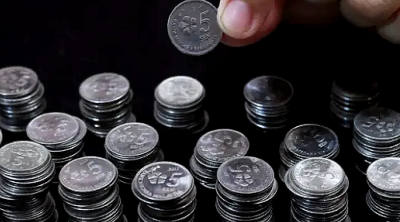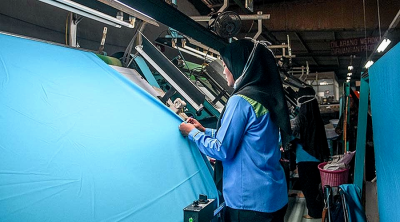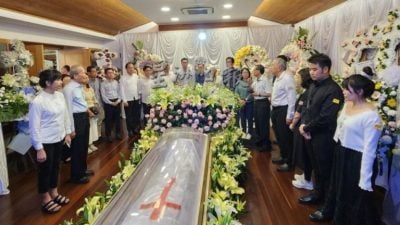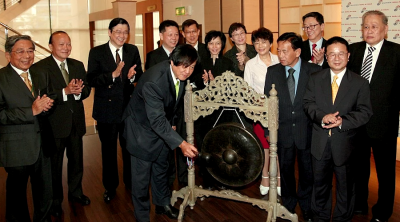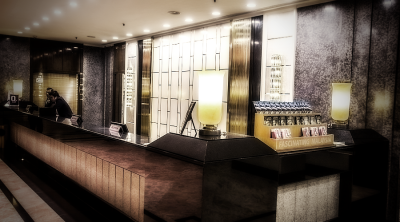The days of going to bars for a drink with colleagues and friends to relax at the end of the day in Hong Kong have faded.
Many of the city’s bars and clubs in nightlife districts likeTsim Sha Tsui and Lan Kwai Fong have found their attendance has been low, with only a few customers even during once bustling happy hours.
In stark contrast to the quiet and lonesome streets in Hong Kong at nights, across the border in neighboring Shenzhen the streets are buzzing, with hawkers crying their wares and the chatter of passersby.
On Sunday, Financial Secretary Paul Chan Mo-po in his blog said in the short term, the government will strive to work to bring the city’s night markets to life, while looking for new momentum for the city in the long run
According to the Hong Kong Immigration Department, in July, on average nearly 160,000 Hong Kong people traveled to the Chinese mainland overland, while the number of travelers from the mainland visiting Hong Kong was less than 100,000.
The surplus flow is expected to continue in August, as over 171,000 Hong Kong people per day had traveled to the mainland by August 14.
In the meantime, about 118,600 people from the mainland have come to the city.
Ben Leung Lap-yan, is charter president of the Licensed Bar and Club Association of Hong Kong.
Taking his own bar as an example, he pointed out that there are only a few customers each evening, and this situation has been ongoing for several months.
Even on Friday and Saturday nights, the bar is half empty.
He said that Hong Kong residents have become accustomed to not going out at night after the pandemic, and with the convenience of travel to the mainland after the border’s reopening, bars have lost a significant number of customers.
On Sunday, Financial Secretary Paul Chan Mo-po in his blog said in the short term, the government will strive to work to bring the city’s night markets to life, while looking for new momentum for the city in the long run.
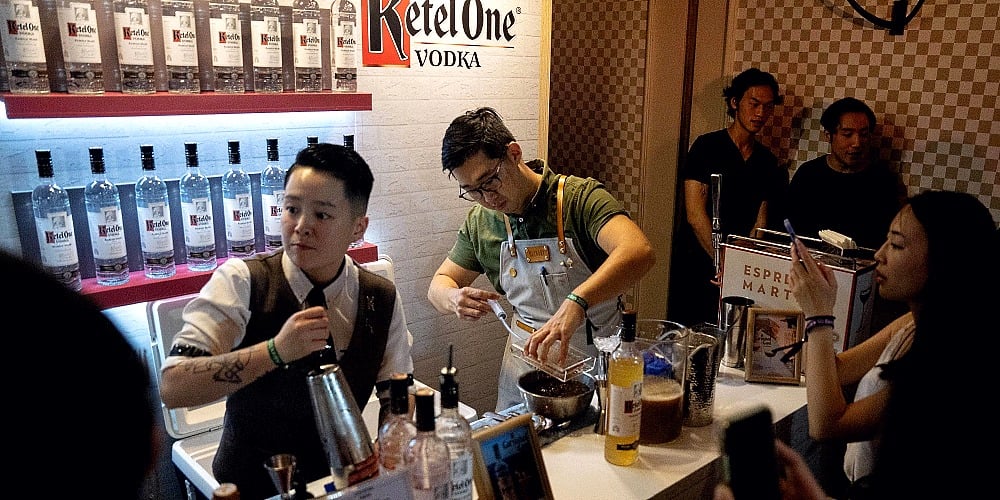
Talking to China Daily, Chin Chun-wing, chairman of the Hong Kong Bar & Club Association (HKBCA), which represents over 400 bars in the city, agreed that the government should promote the night market economy, believing that by creating a vibrant nighttime consumption atmosphere, more people will be attracted to visit bars, potentially leading to a 20 percent overall increase in bar revenue.
Chin, who is also the director of the Bar Pacific Group, revealed that the HKBCA is planning a series of night activities in September, such as running guided themed bar tours; taking tourists to lively bar areas to taste specialty drinks; and introducing discounts specifically tailored for tourists from the Chinese mainland.
He said that all these activities are primarily targeted at young visitors.
Chin noted that there has been an increase in young visitors from the Chinese mainland after reopening borders.
But numbers have failed to meet expectations, and have not made up for the significant number of outbound visits made by Hong Kong people, he said.
He added that he expected that the paradigm shift will gradually ease in the next six months once Hong Kong residents have traveled outside the city after three years of being locked down in the city.
Rayman Chui Man-wai, chairman of the Institute of Dining Professionals, suggested that Hong Kong should designate specific areas for night markets, such as the Wan Chai Promenade, for easier regulation.
Chui said Hong Kong residents have had little incentive to go out after the pandemic, and it is essential for the government to take the lead in revitalizing night markets.
The concept of “night market economy” should not be limited to the food and beverage sector alone, he said, but should also include various goods for sale, or some street performance groups to create a vibrant atmosphere.
Allan Zeman, chairman of the Lan Kwai Fong Group, told China Daily that Lan Kwai Fong Group recorded a 20 percent increase in revenue this year from January to August, and the increase comes from the “well-dressed, generous” mainland visitors, who love to experience something they cannot experience at home.
Zeman suggested the bar industry needs to be creative and provide distinctive offerings as “Even a night bazaar should be first-class and unique.”
Anthea Cheung So-may, association director of Lan Kwai Fong Association, pointed out that in addition to the local market, domestic and overseas consumers are also important to the entertainment and catering services.
She said she would like to see active overseas promotion to attract more international large-scale music, sports, cultural events, exhibitions, and conferences to be held in Hong Kong, thereby promoting economic development.
ADVERTISEMENT
ADVERTISEMENT









